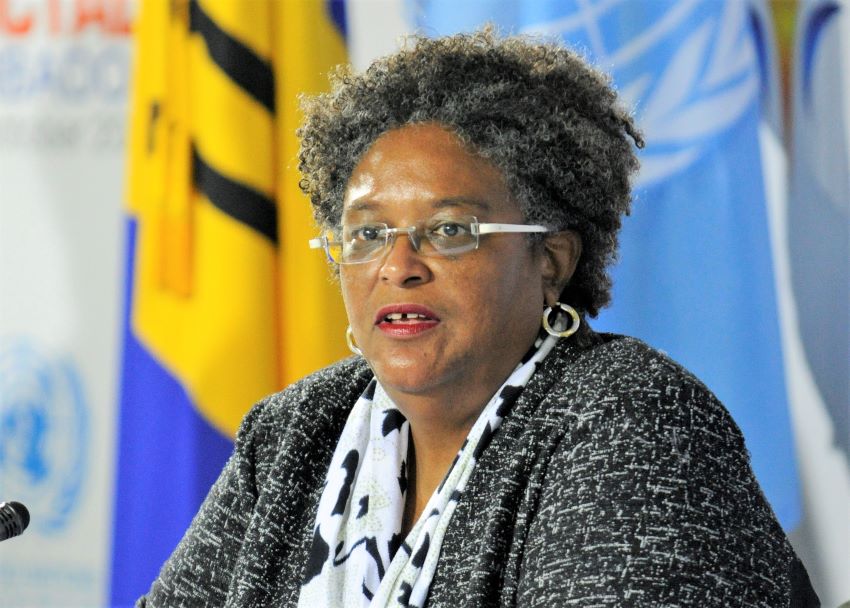Even as member countries of the Caribbean Community (CARICOM) seeks to find their way out of what international agencies have said are food security challenges, Barbados Prime Minister Mia Amor Mottley whose country is at the centre of the search for solutions to the problem, she appears adamant that the people of the region should, nonetheless be mindful of the nutritional and health considerations associated with what they eat. Addressing the opening ceremony of the three-day Small Island Developing States (SIDS) Ministerial Conference on NCDs and Mental Health, at the Lloyd Erskine Sandiford Centre on Tuesday June 13 Prime Minister Mottley
Prime Minister Mia Amor Mottley strongly advocated that SIDS raise their collective voice to reject unwanted food products foisted on them by the developed world, which foods, she said, were contributing to the worsening problem of global non-communicable diseases (NCDs).
Prime Minister Mottley, who, along with Guyana’s President Irfaan Ali is spearheading the creation of a Regional Food Security terminal in Barbados, said that it was important that the region speak with one voice during the deliberations at the now completed forum. She told her audience, which comprised, largely, Ministers of Health and other Health Officials from regional small-island states that confronting the problem of ‘pushing back’ unhealthy foods required both unanimity and equivocation among the Caribbean member states.
While regional and international organizations, including CARICOM have continually highlighted the need for sustainable food production systems to ensure the health of the people of the region, the paucity of the agricultural sectors in parts of the regional and particularly CARICOM countries described as SIDS have pointed to the urgent need for sustainable production systems to ensure the health of the people of the region. What the Barbados Prime Minister told the recent SIDS forum puts into perspective the urgency attached to the hastening the full and final completion of the Regional Food Terminal, the effective functioning of which will rely heavily on the administrative regime largely assigned to Barbados and food supplies for the Terminal which are expected to be supplied largely by Guyana. In focusing on the issue of food safety and the unmonitored importation of extra regional foods by small island states in the region, Prime Minister Mottley told the forum that in circumstances where small-island developing countries were, on account of their collective size and their absence of clout in the marketplace, compelled to accept the unfair global marketplace practices in respect of the quality and nutritional value of exported food.
While she indicated front-of-package labeling might allow for more sensible choices the Barbados Prime Minister said that CARICOM’s voices were not, individually, sufficient to press for front-of-package labeling for foods sold to small countries in the region. Accordingly, she suggested that as a collective a united SIDS unit would draw greater attention to the seriousness of the issue. ““…Small island developing states…have the power of voice…and the power of advocacy when we gather together, and we say to the marketplace that we are not simply small countries to receive that which you do not want in your main markets…; that we are equally deserving of dignity and respect and that together, we are going to make the clarion call for our circumstances to be noticed. “We spend too much money with the diabetes epidemic…, we spend too much money fighting cardiovascular problems…, we spend too much money having to move patients to dialysis who have not controlled their diabetes properly,” the Barbados Prime Minister is quoted as telling the forum.
In her address the Barbados Prime Minister expressed particular concern over the challenges that confront medical institutions in small countries of the region who are challenged to provide patient care to persons whose various medical conditions are, for the most part, a function of food intake.
The mandate of the Barbados Regional Food Terminal also embraces the nutritional bona fides of foods distributed to countries in the region.








